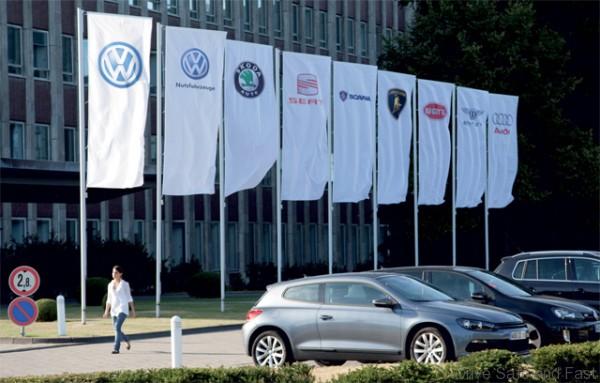We’ve covered most of the major European and Japanese premium marque nomenclatures, from Lexus to Infiniti, from Volvo to Jaguar.
Today I thought it would be fun to examine the three most prominent of these marques: BMW, Mercedes-Benz and Audi. Here what I took away from looking at these three.
In my early mind maps of each brand, I noticed a pattern: Audi had the simplest, most straight forward nomenclature tree. BMW’s was a little more complex but still logical. Mercedes-Benz was in the middle of their nomenclature shift, but it didn’t account for just how extensive and overlapping their portfolio was.

To understand why Audi’s got a tidier family tree than BMW and why BMW’s is tidier than Benz, you need to look at where each of these brand sits.

Audi sits within the VW Group. BMW sits within BMW Group. Mercedes-Benz sits within Daimler.
VW Group consists of 7 passenger car brands, all relatively successful with a massive overlap in product and branding. Porsche, Lamborghini, Bentley, Bugatti all cater to a more affluent crowd. Seat, Skoda and Volkswagen take on the mainstream buyers. Audi sits between these two in terms of volume and pricing.

BMW Group consists of 3 passenger car brands, each extremely successful. MINI takes on the youthful, sporty, fashion-conscious segment. BMW takes on the mainstream premium buyers as Audi does. Ultra-luxury is handled by Rolls-Royce.

Daimler consists really of just 2 passenger car brands. Mercedes-Benz and smart. Mercedes-Benz has been immensely successful, being the sales leader for some years now. smart on the other hand has been struggling for nearly 2 decades. Effectively, Daimler has just 1 viable (extremely successful) passenger car brand: Mercedes-Benz.

Do you see the pattern here? The fewer passenger car brands within the group, the messier and crowded the product portfolio. Every single price point, powertrain variant, and trim level needs to be hit by Mercedes-Benz. Audi, on the other hand, can leave some segments of the market to Porsche and Volkswagen. BMW too can leave out some model variants for MINI and Rolls Royce.

Of course, as the market gets even more crowded and competitive this is already changing. But for now, the takeaway is this: these three premium German brands may look over their shoulder at each other’s moved, but they each take on the market in their own way based on the needs of their parent company.